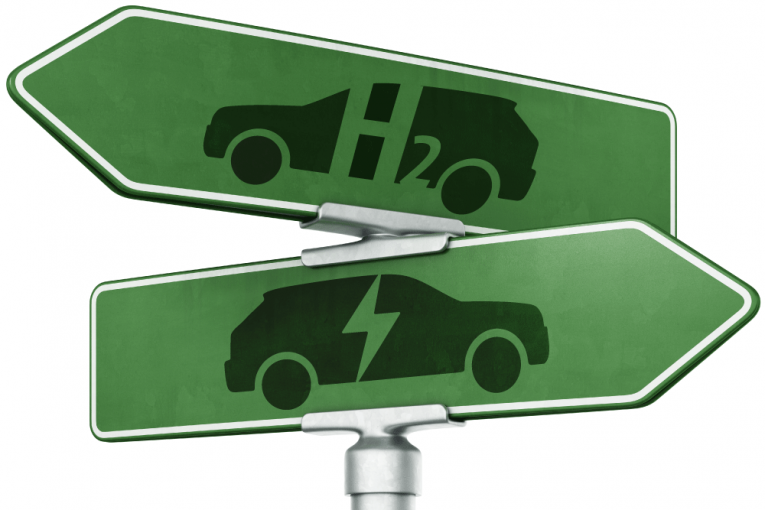
[ad_1]
Alberta’s hydrocarbon-based economy could be re-tooled to capture a $100-billion-per-year market in hydrogen-based energy and diversify the provincial government’s revenues away from oil and gas, according to a new report.
An industrial corridor known as Alberta’s Industrial Heartland north of Edmonton has the potential to be Canada’s first hydrogen production hub as Canada “is strategically positioned to benefit from taking a leadership role in the transition to a net-zero hydrogen economy,” according to a report released Monday by University of Calgary researchers and the Transition Accelerator, a think-tank funded by multiple family foundations and governments, including the Alberta government.
“The region’s low cost for natural gas, technical expertise and ability to rapidly scale-up the production of blue (hydrogen) makes it possible to not only decarbonize industrial processes that use (hydrogen) but also create new fuel markets with up to 90 per cent lower lifecycle GHG emissions,” the report notes.
Currently, Australia, China, Germany, Saudi Arabia, South Korea and the United Kingdom are pursuing hydrogen strategies to reduce carbon emissions because hydrogen produces water vapour rather than CO2 when it combusts in combination with oxygen.
Both the Canadian and Alberta governments are keen to encourage the growth of a hydrogen industry. Alberta also identified hydrogen as an important plank in its long-term natural gas strategy unveiled in October and has funded a handful of small hydrogen demonstration projects in the province.
The report released Monday expects the domestic and international hydrogen markets have the potential to be worth “$100 billion per year or more.”
The report highlights five facilities immediately north of Edmonton that produce hydrogen, including Shell Canada Ltd.’s Scotford refining complex, the NorthWest Refinery and a Nutrien Ltd. fertilizer plant.
In total, the province produces 2,250 tonnes of hydrogen per day from hydrocarbons such as oil and gas. Of that total, roughly 937 tonnes per day can be considered “blue hydrogen,” meaning the process uses a carbon-capture system to reduce emissions. Green hydrogen, meanwhile, is produced using renewable energy to electrolyze water.
The rest of the hydrogen produced in Alberta is considered “gray hydrogen,” because the CO2 emissions associated with its production are not captured.
“We already have a good hydrogen economy in Alberta. It’s an industrial economy. We make hydrogen and we use it to make fertilizer,” said Dan Wicklum, the Calgary-based CEO of Transition Accelerator.
Wicklum said governments previously tried to reduce emissions by mandating certain sectors reduce their emissions to targeted levels either through regulation or taxation, but a hydrogen-based energy system could enable countries around the world to set and meet net-zero carbon targets.
Despite the potential for Alberta and Canada to be a hydrogen supplier, international competitors are already moving into the market.
“Our competitors so far are Australia and Saudi Arabia,” Wicklum said, noting that both countries have already sold hydrogen of hydrogen to buyers in Japan.
In September, Saudi Arabia sent a shipment of blue hydrogen to Japan, said to be the world’s first shipment of the energy source.
Alberta’s abundance of natural gas will make it the second cheapest supplier of hydrogen in the world, after Russia, Alberta’s Associate Minister of Natural Gas Dale Nally said Monday.
Nally said multiple projects in Western Canada could allow Alberta to grow its hydrogen production, including two fully permitted pipelines that had been planned to connect natural gas fields with LNG export projects that could be repurposed to export hydrogen.
“It has the potential in terms of jobs and royalties to be a game changer for Albertans,” Nally said of hydrogen, adding that he expects the province’s oil and gas industry to continue to be a driver of economic growth.
“We have a multi-generational supply of cheap natural gas. We have a skilled workforce with experience in the oil and gas industry. We are equipped to pick up the ball and run with it,” Nally said.
The province has helped fund a handful of hydrogen-based pilot projects, including for the use of long-haul trucks between Calgary and Edmonton as the transportation industry is looking to decarbonize and considers hydrogen fuel a viable alternative.
Indeed, governments around the world have been moving to ban the sale of gasoline and diesel vehicles, including in California and the United Kingdom.
On Monday, Quebec Premier François Legault unveiled a $6.7 billion environmental plan that includes banning the sale of new gasoline-burning vehicles by 2035 as part of its goal to reduce emissions and meet Paris climate targets.
With a file from Reuters
• Email:
[ad_2]
You can read more of the news on source
